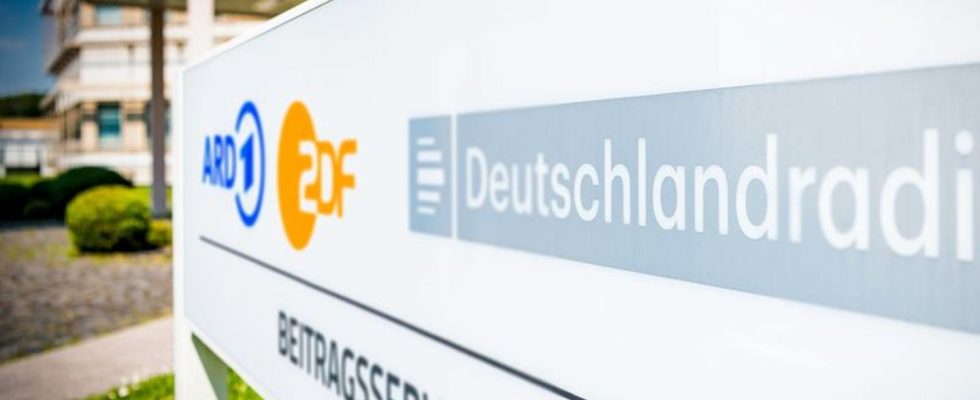media
ARD, ZDF, Deutschlandradio: Council proposes renovation
The council does not want to change the broadcasting fee. photo
© Ulrich Schepp/ARD ZDF Deutschlandradio contribution service/obs
A new expert report increases the pressure for reform on public broadcasting. Will the federal states follow the ideas for ARD, ZDF and Deutschlandradio?
The council is sticking to the current structure of three separate areas with ARD, ZDF and Deutschlandradio. He considers a merger of the houses to be wrong, and the committee is also committed to the structure of nine ARD houses. The broadcasting fee that households and companies pay should remain in place to finance the houses.
The council is proposing a new umbrella organization for ARD that would control central tasks and the central program – this should eliminate duplicate structures in the nine ARD houses. These should focus more on the regional and also seek proximity to the citizens. The mission of the broadcasters should be sharpened.
Financing system should be restructured
The financing system with a broadcasting fee should remain in place. But it should be rebuilt in such a way that houses have to pay more attention to whether they fulfill their mission. Sanctions should be possible. The council is also bringing indexing of the broadcasting fee into play. At the same time, this proposal does not mean that the broadcasting fee will continuously increase. The independent finance commission KEF, which regularly reviews financial needs and suggests the amount of the broadcasting fee, should remain in place but be further developed. Each institution receives money from a global budget.
The council does not assess whether there should only be a single media library in the future. The priority is to standardize the technology. For this purpose, a joint company is to be founded by ARD, ZDF and Deutschlandradio.
The operational management of the media companies should also change. So far, the director at the top has had a lot of influence. The council proposes a collegial management team for a possible ARD umbrella organization as well as for ZDF and Deutschlandradio in order to promote a “contemporary management culture”. The council also wants to establish new committees and replace existing bodies in broadcaster control. A conversion based on this model could also make sense for the individual ARD state broadcasters.
The state broadcasting commission is now meeting
The chairwoman of the Council for the Future Development of Public Broadcasting (Future Council), Julia Jäkel, spoke of a “show of strength” by the states that was necessary. Historically grown structures would have to be adapted. When asked when the ideas needed to be implemented from the council’s perspective, Jäkel said: “It’s urgent, as quickly as possible.” She also said: “The public broadcasters are currently in a downward spiral. Everything is happening in the usual structures.”
It is now the federal states’ turn. Next week, the state broadcasting commission will meet in Bingen for a retreat. The coordinator of the commission and Rhineland-Palatinate media state secretary, Heike Raab (SPD), spoke of a “litter” that had been presented by the council. During the exam, the considerations will be superimposed with those of the states. The KEF Finance Commission should then prepare a special report to find out what exact savings the expert report could bring.
Her broadcasting commission colleague and Saxon media minister Oliver Schenk (CDU) said that public broadcasting must become more digital and efficient. The Future Council’s proposals are a very good basis. “I think some of them are very brave.” His wish is that a draft of a new state treaty could be launched in the second half of the year. In state treaties, federal states describe the mission and structure of public broadcasting.
Brandenburg’s State Secretary Benjamin Grimm (SPD), who is responsible for media policy, said: “The proposals are going in the right direction.” He also referred to the recent reform of the state contract for the ARD broadcaster Rundfunk Berlin-Brandenburg (RBB), in which, for example, a new collegial management structure has already been established.
Should the broadcasting fee be increased again?
The Council’s reform ideas come at a time when political discussions about the level of broadcasting fees are once again increasing. Several prime ministers made it clear before the KEF’s calculation process was completed that they would oppose an increase from 2025. The KEF is expected to recommend the contribution amount in February. Actually, the countries have to follow this closely. They can only change the height unanimously. According to a preliminary KEF draft, an increase in the broadcasting fee by 58 cents to 18.94 euros per month is being discussed.
The Council does not provide an assessment of the amount of contributions in its report. He describes that the proposals will lead to significant savings in the medium term. The states would then have to decide to what extent these would be used to reduce the contribution or to fulfill the order.
For many years, countries and broadcasters have been citing their desire for reform and taking appropriate steps. At the same time, countries and broadcasters repeatedly accused each other of not taking enough initiative.

